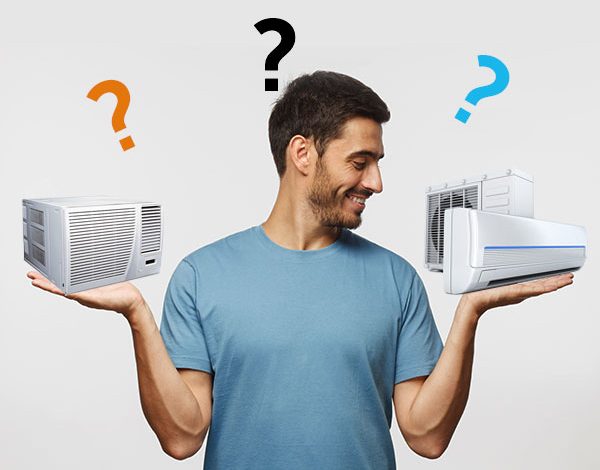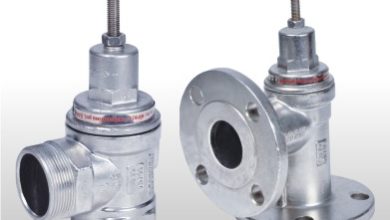The Future of Aircon: Trends and Innovations to Watch in 2023

As the world grapples with the far-reaching impacts of climate change, the urgency for sustainable and energy-efficient solutions has reached unprecedented levels. Within this context, the aircon installation company in Singapore emerges as a vital element in maintaining comfortable environments for our homes and workplaces. However, as technology progresses and consumer behavior evolves, remarkable transformations await the future of aircon.
The HVAC industry is swiftly evolving to meet the demands of a society increasingly focused on environmental consciousness, incorporating smart thermostats and eco-friendly refrigerants among its advancements. This article delves into the key trends and developments that will influence this crucial technology’s future. Whether you are a homeowner contemplating an HVAC system upgrade or a business owner striving for enhanced energy efficiency, there is an abundance of promising developments on the horizon in the realm of air conditioning. Therefore, let us delve into the depths and discover the uncharted possibilities that lie ahead for this fundamental technology.
Environmental concerns and emerging regulations
As global awareness of climate change’s impact grows, governments and regulatory bodies are implementing fresh regulations to curb the environmental consequences of air conditioning systems. Among the notable recent changes is the gradual elimination of hydrochlorofluorocarbons (HCFCs) and hydrofluorocarbons (HFCs), highly potent greenhouse gases. In their stead, environmentally friendly refrigerants like hydrofluoroolefins (HFOs) and natural alternatives such as carbon dioxide and ammonia are gaining popularity.
However, the focus of new regulations extends beyond refrigerants alone. Numerous countries are introducing minimum energy efficiency standards for air conditioning systems, mandating that manufacturers produce products meeting specific energy efficiency criteria. This development has sparked an increase in the production of more efficient air conditioning systems, which not only conserve energy but also reduce emissions of greenhouse gases.
Air Conditioning & Electricity Demand
The warming climate has led to a significant increase in Cooling degree days (CDD). CDD quantifies the amount of cooling required to maintain indoor comfort, representing the number of degrees by which the average temperature of a day exceeds 65°F. With hotter weather conditions, the demand for air conditioning has surged, consequently resulting in a rise in electricity consumption.
A comprehensive analysis conducted by Climate Central on 246 cities across the United States revealed that a staggering 95% of these cities experienced a rise in CDDs since the 1970s. Surprisingly, this trend has spread beyond the southern regions of the country and has also impacted northern latitudes like Minneapolis and Portland. In the forthcoming years, experts expect a significant rise in the total electricity production in the US, which will correspondingly increase the energy consumption of air conditioners. Presently, air conditioners contribute approximately 6% to the total electricity production in the US.
- Projections indicate that space cooling will contribute to a 37% increase in global electricity demand from 2018 to 2050. Presently, air conditioning units and fans already account for nearly 20% of the world’s total electricity consumption.
- By 2050, the global energy demand attributed to air conditioning is expected to nearly triple, reaching a staggering 6,205 TWh, equivalent to the electricity consumption of China and India combined. Doubling the energy efficiency of air conditioning systems could reduce the demand to just 3,407 TWh.
Revolutionary AC Technology and Integration with IoT
The Future of aircon lies in the continued advancement of intelligent technology. One of the most significant achievements in the realm of air conditioning is the emergence of intelligent technology.
When the Internet of Things expands (IoT), air conditioning systems have attained the capability to be remotely controlled through smartphones or other connected devices. This implies that individuals, whether homeowners or business owners, can conveniently adjust the temperature of their premises from any location and at any time.
However, the significance of intelligent technology extends beyond mere convenience. It holds immense potential for energy conservation and cost reduction. Take, for instance, the advent of intelligent thermostats that possess the ability to learn users’ habits and adapt temperature settings accordingly. By comprehending when premises are unoccupied, these systems can power down, and just before someone returns, they can activate, resulting in considerable energy savings. Furthermore, intelligent technology enables the monitoring of air conditioning systems’ performance, promptly notifying users of any malfunctions or concerns that require attention.
Advancing Energy Efficiency and Sustainability in the Aircon industry
As previously highlighted, the industry of portable aircon installation in Singapore recognizes the growing significance of energy efficiency. Manufacturers are actively investing in cutting-edge technologies and innovative materials to develop systems that are highly efficient, consuming less energy, and emitting fewer pollutants.
A particularly promising advancement in this realm is the utilization of variable refrigerant flow (VRF) systems. These systems employ a single outdoor unit to regulate temperature individually for multiple indoor units, resulting in superior energy efficiency compared to conventional systems. Furthermore, VRF systems can be seamlessly integrated with renewable energy sources like solar panels, further curbing energy consumption.
Moreover, sustainability is a key focus within the industry of portable aircon installation in Singapore. Many manufacturers are now employing recycled materials in their designs and constructing systems that, after their life cycle is over, are simple to deconstruct and recycle. These measures not only mitigate waste but also contribute to minimizing the overall environmental impact of air conditioning systems.
New Cooling Solutions Beyond the Norm
While conventional air conditioning remains the prevailing choice for cooling buildings, there is a rising trend in favor of alternative cooling solutions. Among these, radiant cooling stands out, employing chilled water pipes or panels to achieve a cooling effect. This approach boasts higher energy efficiency compared to traditional air conditioning systems and can be seamlessly integrated with renewable energy sources like geothermal power.
Another noteworthy alternative cooling solution is evaporative cooling, which utilizes water to lower air temperature. Particularly popular in arid climates, this method surpasses conventional air conditioning systems in terms of efficiency under such conditions. Moreover, it represents a more sustainable choice, consuming less energy and generating fewer emissions.
For residents and businesses seeking an aircon installation company in Singapore, it is essential to explore these alternative cooling solutions to find the most suitable option for their specific needs.
Emerging Trends in Air Filtration and Purification Systems
Enhancing the air we breathe has emerged as an increasingly significant concern, with air conditioning systems playing a vital role in this endeavor. Among the most remarkable advancements in this field, the Air Scrubber by Aerus stands out.
Innovative technologies, such as photocatalytic oxidation (PCO) and plasma air purification, have revolutionized the way we address air quality challenges. PCO employs ultraviolet light to eradicate pollutants and microbes present in the air, while plasma air purification utilizes ionization to eliminate airborne contaminants. These breakthrough technologies can be seamlessly integrated into air conditioning systems, elevating indoor air quality and fostering a healthier environment.
Impact of Artificial Intelligence on Air Conditioning Systems
As we have previously highlighted, the future of aircon and the significance of smart technology in the air conditioning industry is continuously growing. Among the remarkable advancements in this field, the utilization of artificial intelligence (AI) stands out as a game-changer for optimizing the performance of AC systems.
By harnessing AI, it becomes possible to analyze data derived from sensors and various other sources, enabling the identification of patterns and trends in the utilization of a building. This valuable information can then be employed to make adjustments to the air conditioning system, such as temperature and other parameters, thereby enhancing its efficiency and cost-effectiveness. Additionally, AI can predict maintenance or repair requirements, aiding in minimizing downtime and reducing associated expenses. The future of aircon looks promising with the integration of AI technology, promising greater comfort, energy efficiency, and cost savings.
Future Trends and Predictions
The future of the aircon industry holds numerous distinctive trends and predictions that will shape the industry in unique ways. These trajectories transcend the recent circumstances and extend beyond the end of the pandemic. Here are some key trends and predictions:
- Unwavering Commitment to Energy Efficiency and Sustainability: A paramount trend on the horizon is the industry’s unwavering commitment to energy efficiency and sustainability. In response to growing consumer awareness and more stringent government regulations, manufacturers will continue to push the boundaries of innovation to meet these evolving demands.
- Integration of Smart Technology and Artificial Intelligence: The air conditioning industry will witness an upsurge in the integration of smart technology and artificial intelligence. As time passes, these once exclusive advancements will become more accessible and affordable, permeating the industry and resulting in remarkable enhancements in energy efficiency and cost-effectiveness.
- Emphasis on Indoor Air Quality and Ventilation: In the future, there will be a profound emphasis on indoor air quality and ventilation. Recognizing the enduring significance of providing healthy and safe environments, the industry will persistently focus on enhancing indoor air quality. This emphasis will nurture a sense of well-being and security among users.
These future trends and predictions illuminate the path that the air conditioning industry will tread, paving the way for a transformative and promising era.
Conclusion
The future of aircon is set to be exciting and dynamic, with new technologies and innovations driving the industry forward. From smart technology to alternative cooling solutions, the HVAC industry is evolving rapidly to meet the demands of a more sustainable and energy-efficient future. No matter if you’re a homeowner or a business owner, there exist numerous reasons to feel a sense of hopefulness regarding the future of aircon.
Therefore, if you’re considering enhancing your HVAC system, it’s essential to stay alert for these remarkable trends and advancements that set it apart from the rest. And when you do, consider Nature Cool as your trusted partner in achieving a comfortable and eco-friendly indoor environment. With Nature Cool, you can experience cutting-edge cooling solutions that prioritize both your comfort and the planet’s well-being.





